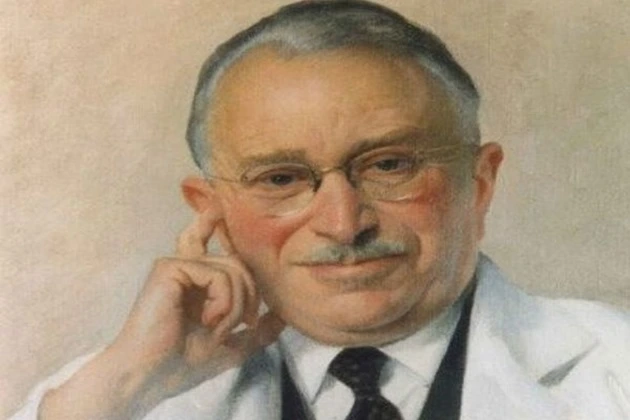How and why did the Paralympic Games arise? Not everyone can answer this question today, and not everyone knows about the role of British neurosurgeon Ludwig Guttmann in the emergence of this unusual sports movement.
More than half a century after the first Paralympic Games, this movement has acquired a grand scale, giving many people with disabilities the opportunity to feel happy.
Gutmann’s escape from Nazi Germany
One of the principal founders of the Paralympic movement, Ludwig Guttmann, was born in 1899 in the German Empire, received a medical degree at the University of Freiburg, and began working at the Wenzel-Hanke Hospital in Breslau, dealing with the problems of neurosurgery.
By age thirty, he had become Germany’s leading neurosurgeon and was appointed hospital director. It was at that time that the Nazis came to power in the country, and Guttmann, who was Jewish by birth, increasingly had to face limitations in his ability to practice medicine fully. Guttmann insisted that the hospital accept everyone who sought help, which provoked anger from the SS and the Gestapo.
One November night in 1938, an event occurred that later became known as Kristallnacht – a massive wave of Jewish pogroms swept through the country. Guttmann, who by that time was already suspected of hiding his patients to prevent their deportation to concentration camps, was forced to leave his homeland.
With the help of a Nazi official, whose relative was treated by Guttmann, he and his family managed to move to Portugal and from there to England, where the Council for the Assistance of refugee scientists organized the emigration of the whole family.
They settled near Oxford, where Ludwig Guttmann got a job in the department of neurosurgery at Radcliffe Hospital and, four years later, was recognized as one of the most influential neurosurgeons in England.
In 1944, the British government asked Gutmann to found and head the first National Spinal Injury Center at Stoke Mandeville Hospital, near London. Guttmann led the center for the next 22 years until his retirement.
Gutmann’s research in the field of neurosurgery
As the head of the largest Spinal Injury Treatment Center, Guttmann continued to study neurosurgery and became the author of many methods for treating and rehabilitating his patients, many of whom were former military personnel.
He defended the concept of early treatment of the wounded in specialized departments and promoted compulsory physical exercise as a form of rehabilitation, integration, and motivation for people in wheelchairs. He was convinced these measures would allow patients to build physical strength and maintain morale.
Guttmann’s patients practiced badminton, table tennis, billiards, and athletics. He paid particular attention to archery, which, in his opinion, had a special therapeutic value since it allowed him to naturally strengthen the upper limbs, shoulders, and trunk, which depend on the stable and stable position of a person with lower-limb paralysis.
Through his research and social activism, Guttmann has achieved groundbreaking developments in the treatment of spinal injuries and has helped countless patients in rehabilitation, contributing to their physical well-being and social integration. His activism and dedication transformed the fields of neurosurgery and neurorehabilitation, creating treatment paradigms that are still used today.
From the Stoke Mandeville Games to the Paralympics
Guttmann has been awarded numerous awards for his outstanding work. In 1950, he was appointed an officer of the Order of the British Empire. A year later, he became an associate officer of the Venerable Order of St. John and was later promoted to Commander of the British Empire. He was then knighted by Queen Elizabeth II in 1966.
But twenty years earlier, Guttmann had developed his ideas further by organizing the first sports games of the center for the disabled, which included archery competitions, which were first held in Stoke Mandeville in 1948. In subsequent years, other sports were gradually introduced into the competition program.
Soon, patients from other clinics joined the Stoke Mandeville Center staff, and in 1952, these unusual competitions acquired an international scale with the participation of Dutch veterans. Two years later, 14 countries took part in the Stoke Mandeville Games. Guttmann’s initiative and the development of the sporting spirit of people with disabilities have brought him worldwide fame and recognition.
In 1956, the International Olympic Committee awarded Ludwig Guttman the Sir Thomas Fearnley Cup for his achievements in the Games. Soon after, the famous neurosurgeon founded the British Sports Association for the Disabled and became its first president, serving in this position almost until the end of his life.
In 1960, Guttmann managed to bring his vision of an international tournament to life when the games in Stoke Mandeville were held in parallel with the official Summer Olympics held in Rome and, in fact, became equivalent to the Olympic Games. This event was the birth of the Paralympic Games, although it was not until the 1984 Olympics that the term was officially used and approved by the International Olympic Committee (IOC).
Ludwig Guttmann did not live to see this event; he died in the spring of 1980, but his business continued to develop. The Paralympic Games are traditionally held after each Olympics and even at the same venues. Society has become much more tolerant of people with disabilities, and they not only show good results in sports but also discover new opportunities for themselves, such as the artist Sue Austin, who demonstrates artistic wheelchair swims.
